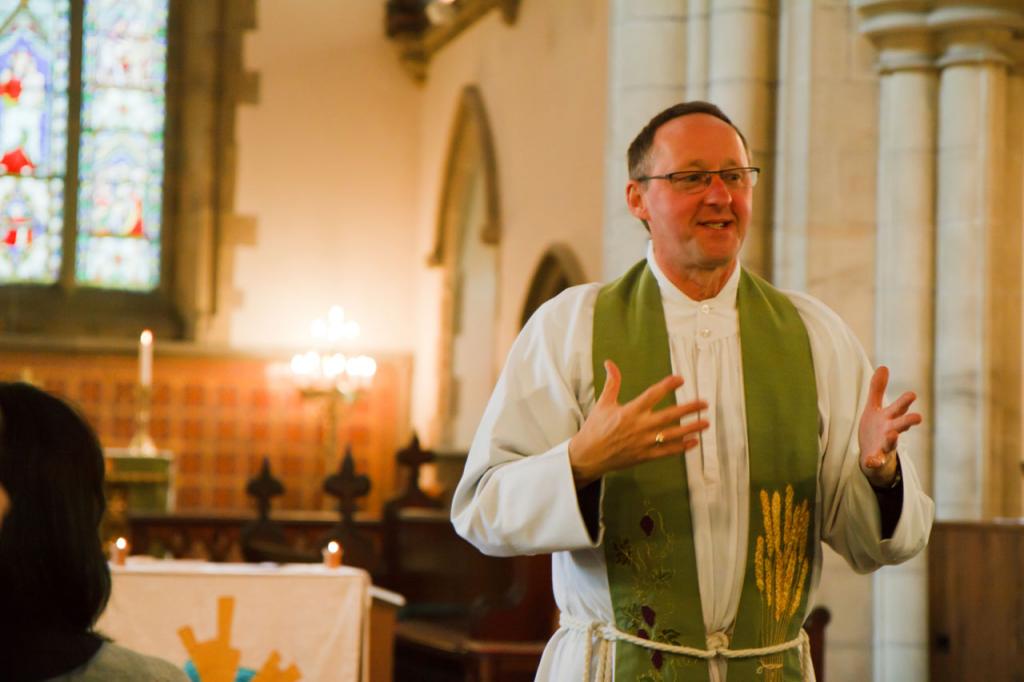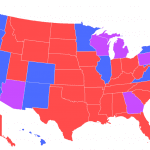During the COVID lockdown, churches were forced to put their services online. Even after the restrictions were eased and in-person services resumed, many churches continued to stream their services on the internet.
As a result, thousands of thousands of sermons from all kinds and sizes of churches are online. Which means that researchers can now study them.
The first study found that the median length of sermons was 37 minutes. Catholics have the shortest sermons, with homilies lasting only 14 minutes. Mainline Protestants come in at a median of 25 minutes. Evangelical preachers go on for 39 minutes. Black ministers have the longest sermons, at 54 minutes.
Research findings are often determined by the tools they use, so the computer analysis did much with word counts, tabulating what words come up most often in churches of various types. Many of those were just ordinary words–“say,” “know,” “life,” “come”–or discovery of the already obvious. (evangelicals use “hell” and “salvation” more often; mainliners talk about the “poor,” Catholics use their theological vocabulary such as “Eucharist,” Black preachers use a lot of “Hallelujahs.” (As always, I wish there would have been a breakdown to the level of denominational differences, so that Lutherans sermons could be analyzed. I suspect they would include Law and Gospel, Word and Sacrament talk.)
A few word count findings were significant. I was glad to see that 98% of the sermons mentioned “God” or “Jesus.” But I’d like to know which! How many are preaching a generic deity and how many are preaching God incarnate and crucified?
We also learn that New Testament books of the Bible are mentioned (90%) more often than Old Testament books (61%; some sermons, of course, mention both).
The second study focused on what, I suspect, many social scientists were most interested in: How sermons addressed politics and national issues. The time-frame included the run-up to the election, so it was found that 67% of the congregations heard at least one sermon that mentioned the elections. Interestingly, only 41% of Catholics did so.
Of the 71% of evangelicals who mentioned the election, just short of half, 48%, mentioned specific issues. Black ministers mentioned the election as often as Mainline Protestants, at 63%, but most of their emphasis was simply encouraging their congregation to vote.
As for issues, 44% heard sermons that mentioned racism. But, according to a spinoff from the first study, only 4% of the sermons mentioned abortion.
And despite the media narrative about conservative churches promoting Trump, the research found hardly any endorsement of a specific candidate. There was so little of that, researchers were unable to find a big enough sampling for the computers to track and measure.
Trying again, researchers took a sample of 535 sermons and read through them. In 61 cases, they felt that the sermon favored either the Republicans or the Democrats, but there was no endorsement of either the party or the candidate by name. But such cases of biased sermons came to only 11% of the sermons sampled.
I commend to you an excellent article on the study and, more broadly, on the genre of the sermon in general. It appears in the New Yorker, of all places, and despite the liberal bias of that publication–see, now I am stereotyping–the article is positive, sympathetic, and informative. Read Casey Cep, What Americans Hear in Church, who concludes, “the words of sermons matter, even if neither Pew nor the very people who deliver them can ever know precisely how.”
One final thought: I found the study, while interesting, rather disconcerting. Thousands of pastors–maybe some of you readers–were having their sermons scrutinized without their permission!
When pastors preach, they are addressing their flock. Sermons are proclaimed in the context of the church, the specific congregation. Not everything pastors say in a sermon might be appropriate for the general public. When you put up your sermon online, your sermon is accessible to that public, for good (perhaps a listener will be converted) or for ill (perhaps a listener will accuse you of “hate speech” if you say something he or she disapproves of).
Insofar as our country clamps down on free speech and religious liberty, this could become a problem, with the internet being used as a means of surveillance of churches. I’m not saying don’t stream your sermons, just offering something to think about if things get worse.
Photo: Preaching in Church by Petr Kratochvil via PublicDomainPictures.net, CC0, Public Domain













